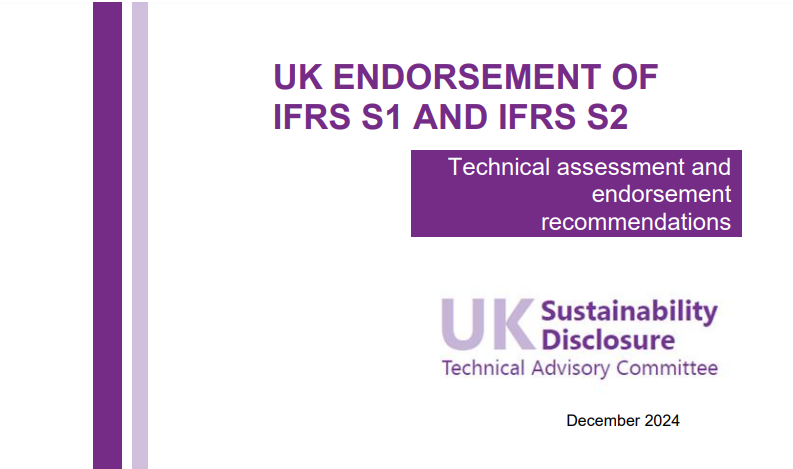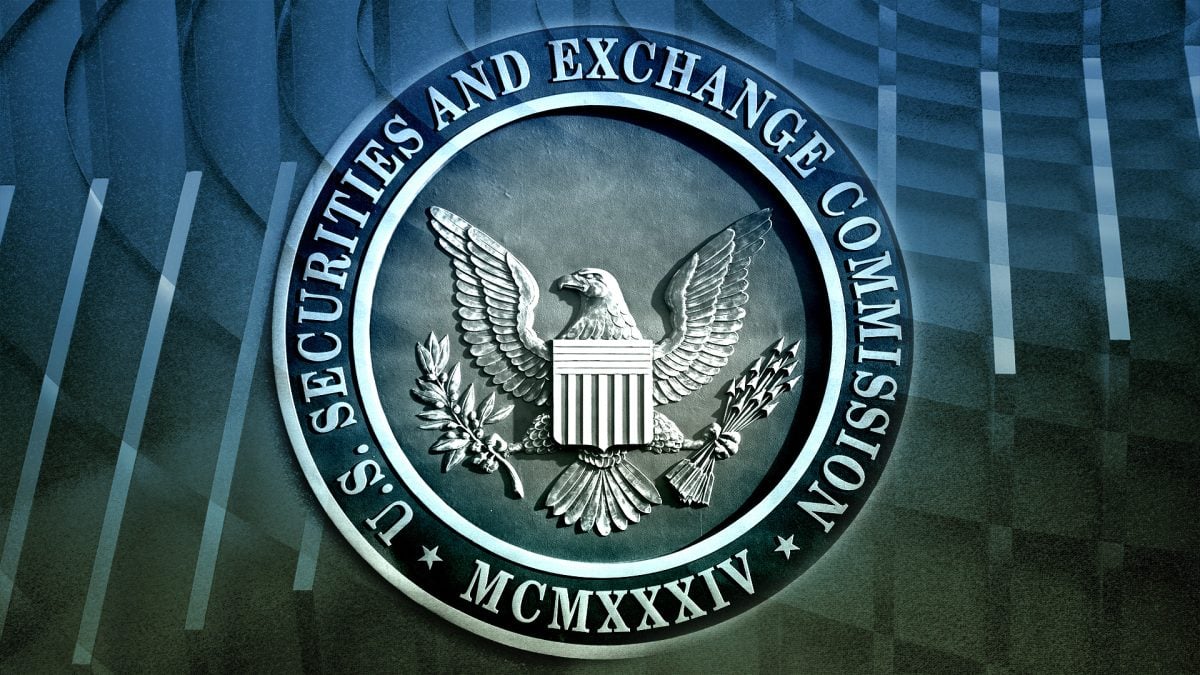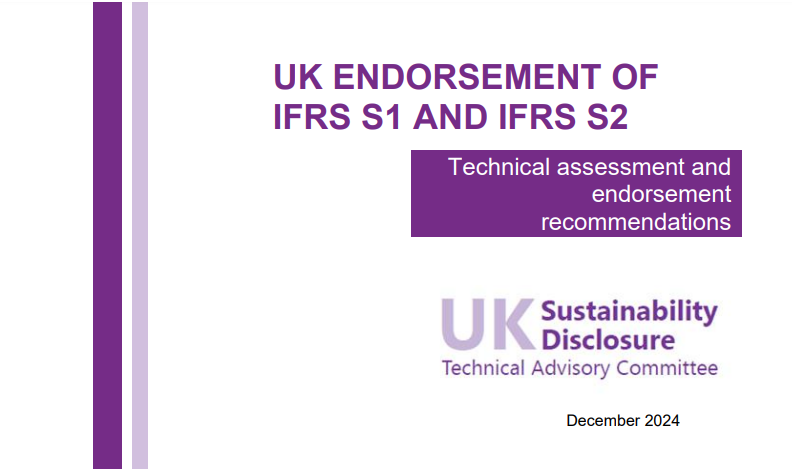UK Advisory Committee Recommends Adoption of IFRS Sustainability Reporting Standards
In December 2024, the UK Technical Advisory Committee (TAC) released its recommendations on the adoption of IFRS S1 and S2 standards for sustainability reporting. TAC supports these standards but suggests key amendments, including extending the "Climate-First" provision to two years and aligning the standards with UK legislation. These changes aim to help businesses transition smoothly to these frameworks while ensuring compliance with national requirements. The recommendations highlight the UK’s continued leadership in sustainability and transparency in reporting.

In December 2024, the UK Technical Advisory Committee (TAC), appointed by the government to advise on sustainability disclosure, announced its findings. TAC supports the approval of the International Sustainability Standards Board (ISSB) IFRS S1 (general sustainability) and IFRS S2 (climate-related) reporting standards for UK companies.
These standards, released by ISSB in June 2023, aim to unify global sustainability reporting. Following their publication, the International Organisation of Securities Commissions (IOSCO) urged regulators worldwide to incorporate them into their legal frameworks. Over 30 jurisdictions representing 57% of global GDP have committed to their adoption.
The TAC’s publication aligns with the former UK government’s 2023 Green Finance Strategy, which called for the evaluation of the IFRS standards post-release. In May 2024, the government formally tasked TAC with consulting on the potential adoption of the standards.
Familiarise yourself with the TAC recommendations to stay informed about the latest changes in sustainability reporting and gain a better understanding of how these may impact your company in light of the new standards.
Key TAC Recommendations
TAC supports the adoption of IFRS S1 and S2, which align with global sustainability reporting goals, but has proposed several key amendments to better suit the UK context and enhance the practical application of these standards:
- Extension of the "Climate-First" Provision: Initially, the ISSB allowed companies an additional year to prioritise climate-related disclosures before addressing other sustainability factors. However, given the complexity and growing urgency around climate reporting, TAC suggests extending this period to two years. This extension would allow UK organisations more time to focus on the environmental impact of their operations and to implement robust climate-related disclosures effectively.
- Alignment with National Standards: TAC recommends adapting the ISSB standards to better fit the UK's regulatory and legal framework. This adaptation would ensure that the standards are not only relevant on a global scale but also meet the specific requirements set out by UK regulations. The intention is to avoid redundancy and to ensure a streamlined, locally relevant approach that does not conflict with existing national laws or reporting obligations.
- Focus on Practical Implementation: Recognising that the transition to these new standards can be challenging for many companies, TAC advocates for the creation of detailed guidance and practical training materials. These resources would help organisations understand how to incorporate the new standards into their existing reporting processes, providing clarity on methodologies and best practices. The focus here is to facilitate smoother integration, particularly for small and medium-sized enterprises that may face greater resource constraints in adapting to these global requirements.
These proposed amendments aim to balance global sustainability goals with the practical realities of reporting for UK companies, ultimately contributing to more effective and efficient adoption of IFRS standards.
Context and Importance of Standardisation
ISSB standards aim to establish a unified approach to sustainability disclosure, increasing transparency for investors and stakeholders. With the UK maintaining its position as a leader in sustainable finance, adopting these standards highlights its commitment to global coordination on sustainability matters.
These steps reinforce the UK’s role as a key player in the global sustainable investment market, establishing a foundation for integrating standards already supported by numerous jurisdictions.
Conclusion
The implementation of IFRS S1 and S2, coupled with the proposed amendments from TAC, will equip UK companies with the tools needed to align with global sustainability reporting standards, while adapting to local legislative frameworks. These changes are vital for businesses as they navigate the transition to low-carbon, sustainable practices, ensuring transparency and accountability. For investors, the enhanced disclosures will offer clearer insights, facilitating better decision-making and driving long-term value creation. Ultimately, the recommendations will contribute to achieving both national and global sustainability objectives.



